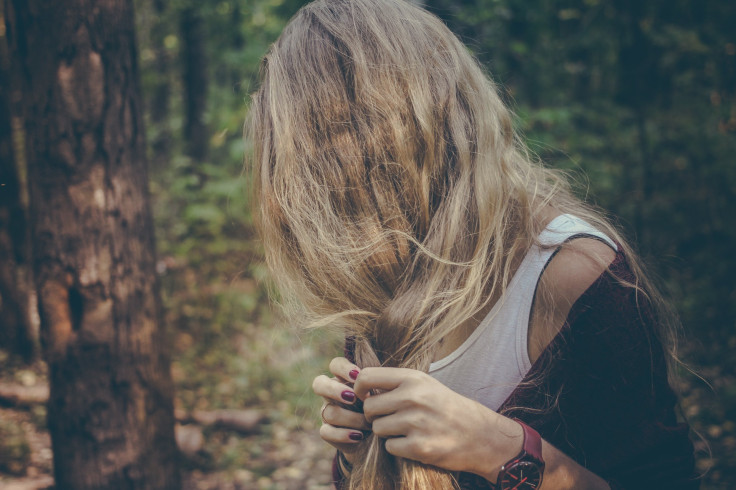Uncombable Hair Syndrome Causes: 3 Genetic Mutations Linked To 'Bad Hair Days,' Plus How To Treat It

Bad hair days are the bane of our existence, whether the gel fails to hold up our spikes, or the hairspray makes our hair fall flat. Either way we style it, our locks fail to stay in place, leaving us disgruntled. Most of us are able to comb through our unruly, unmanageable hair, but for a small population with "uncombable hair syndrome," (generally blondes with dry hair), tangled locks are a daily nuisance.
So, what causes the unruly hair phenomenon?
Uncombable Hair Syndrome: A Genetic Disorder
Currently, scientists speculate the syndrome is inherited in an autosomal dominant manner, so a mutation in only one copy of the responsible gene in each cell is enough to lead to this condition. When a person with this condition has children, each child has a 50 percent chance of inheriting that mutation, according to Genetic and Rare Diseases Information Center.
Now, a team of researchers from the University of Bonn and the University of Toulouse have identified three genetic mutations responsible for uncombable hair syndrome, including PADI3, TGM3 and TCHH.
Professor Regina Betz, from the Institute for Human Genetics at the University of Bonn, notes in a statement: "Those who suffer from uncombable hair do not necessarily seek help for this from a doctor or hospital.”
However, the findings suggest the anomaly occurs more frequently in some families, hinting at a genetic cause, which could help with future treatments.
Although very little is known about the syndrome, Betz, a specialist for rare hereditary hair disorders, along with her colleagues, managed to find a total group of 11children who were all affected by the disorder. Researchers at Bonn sequenced all their genes, and then compared them in large databases, where they came across mutations in three genes involved in hair formation.
The first two genes, PADI3, TGM3, contain the assembly instructions for enzymes, while the third, TCHH, contains an important protein for the hair shaft. Typically, in healthy hair, TCHH proteins combine together with extremely fine strands of keratin, which are responsible for the shape and structure of the hair. Meanwhile, PADI3 changes the hair shaft protein TCHH that the keratin filaments adhere to, according to the researchers. The TGM3 enzyme then produces the actual link.
By conducting experiments in cell cultures, the researchers were able to highlight the importance of identified mutations on how proteins function. So, if just one of the three components is not functional, this could have detrimental effects on hair structure and stability. For example, mice with a PADI3 or TGM3 defective gene develop distinguishing fur anomalies, which are similar to humans with uncombable hair syndrome.
These findings have clinical implications, because, "[W]e can now secure the clinical diagnosis of 'uncombable hair' with molecular genetic methods," Betz noted in the statement.
Although a nuisance, symptoms of this syndrome are most pronounced in childhood, appearing from three months of age to 12 years of age. The condition spontaneously regresses in late childhood, with hair becoming slightly more manageable in adulthood. Patients can rejoice since the syndrome generally occurs in isolation without any other health impairments.
Inevitably, uncombable hair syndrome can be tiresome and lead to mental stress, but Betz reassures: “[T]hose affected have no need to otherwise worry."
So, how do you treat this syndrome?
Uncombable Hair Syndrome Treatment
There is no definitive treatment for uncombable hair syndrome, but the condition does improve or resolves on its own, with the onset of puberty. Practicing good hair hygiene by using gentle conditions and soft brushes, along with avoiding hair treatments like perms, chemical relaxers, or excessive brushing and blow drying, can help improve hair manageability.
One isolated case report found biotin supplements significantly improved hair strength and compatibility. There was an increase in rate of growth after four months of supplementation.
Every case is unique, but most people with this syndrome need not worry about their health.
Source: Buket U F, Cau L, Tafazzoli A et al. Mutations in Three Genes Encoding Proteins Involved in Hair Shaft Formation Cause Uncombable Hair Syndrome. The American Journal of Human Genetics. 2016.



























